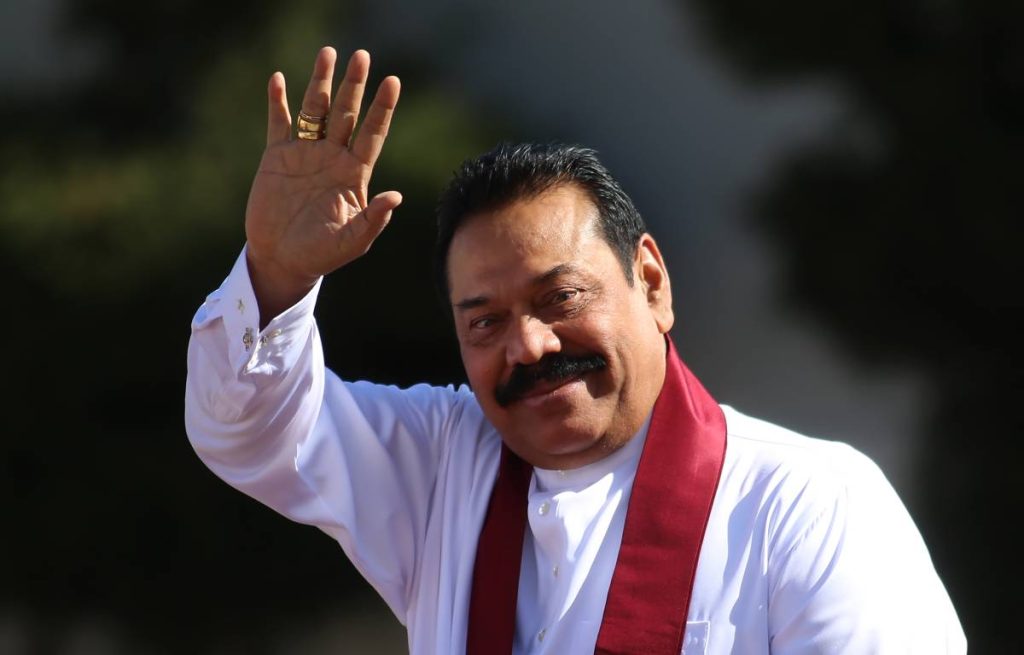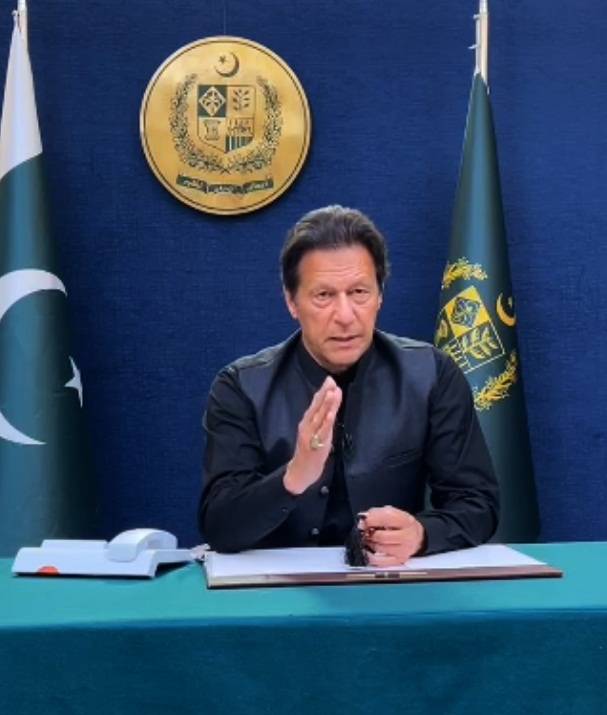India’s neighbours Pakistan and Sri Lanka are going through a massive churn. If it’s a constitutional crisis facing Pakistan with Imran Khan refusing to let go of the PM’s chair, Sri Lanka is facing its worse economic predicament since its independence. Asian Lite News takes a closer look
Khan denotified as PM
Pakistan Tehreek-e-Insaf (PTI) chairman Imran Khan has been denotified as the prime minister of Pakistan.
A statement was issued in this regard from the country’s Cabinet Division after the dissolution of the National Assembly, Geo News reported.
The denotification comes after the deputy speaker of the National Assembly (NA) Qasim Suri dismissed the no-confidence motion against the PTI chairman and termed it “unconstitutional”.
Pakistan Opposition parties have been contemplating their actions going forward after the no-confidence motion against Imran Khan was rejected and the National Assembly was dissolved.
Opposition Leader in the National Assembly Shehbaz Sharif said that Imran Khan and National Assembly speaker Asad Qaisar will be tried under Article 6 of the Constitution once their government falls, Business Recorder reported.
Bilawal Bhutto Zardari, chairman of the Pakistan Peoples Party (PPP), said that the opposition will “initiate a legal battle” against the “unconstitutional ruling by the NA Deputy Speaker”.
After the no-trust motion against Imran Khan was dismissed on Sunday, Pakistan Army had said it is not involved in politics.
Pakistan Chief Justice Umar Ata Bandial said that all orders and actions initiated by Imran Khan and the president regarding the dissolution of the National Assembly will be subject to the court’s order.
Chief Justice Bandial made the observation after taking notice of the current situation in the country following the dismissal of a no-confidence motion against Imran Khan by NA Deputy Speaker Suri.
Meanwhile, Khan shared more details about the threat he said he had been facing since early last month.
After the house was prorogued on Sunday, a number of PTI leaders rushed to the Prime Minister’s Office and felicitated Khan on the “success of his surprise move”, Dawn reported.
In remarks that were televised, he told them that when the National Security Council (NSC) had condemned the involvement of an external force in no-trust resolution, counting (of votes on the motion) had become “irrelevant”.
Khan revealed that the US had sent a threatening message through Pakistan’s envoy.
He was quoted as saying that US Assistant Secretary of State for South and Central Asian Affairs Donald Lu had reportedly in a meeting with Ambassador Asad Majeed warned there could be implications if he survived the opposition’s no-confidence motion in the National Assembly, Dawn reported.
The premier said he had reports that PTI dissidents had frequented the (US) embassy.
“What were the reasons that the people, who have left us, met people of the embassy frequently in the last few days?” he wondered.
He termed the Deputy Speaker’s ruling as “shocking” to the opposition.
In fact, Khan said the opposition was unable to understand what had happened.
If he had told them (opposition) about his surprise a day earlier, they would not have been shocked this much, he added.
Sri Lankan cabinet resigns
With increasing street protests demanding Sri Lankan Prime Minister Mahinda Rajapaksa’s government to step down, the country’s Cabinet of Ministers except Rajapaksa have resigned.
Following a meeting with the Prime Minister, all the Cabinet ministers have submitted their letters of resignation to him on Sunday evening.
“We discussed about current issues of the country with the Prime Minister and we handed over letters of resignation,” Dinesh Gunawardena told the media after handing over his ministerial portfolio.
Gunawardena said the Sri Lankan President Gotabaya Rajapaksa and the Prime Minister are scheduled to meet on Monday morning and decide the future of the government. However, the decisions on resignations of the state ministers were not finalised.
Amid growing public protest a number of ruling coalition parties had insisted to dissolve the cabinet and form an interim government with the consent of all parties, including the opposition.
Earlier on Sunday Mahinda Rajapaksa’s son Namal Rajapaksa, who was the country’s Sports Minister, had tendered his resignation and had left the country with his family.
Defying the curfew Sri Lankans took to heavily guarded streets on Sunday and urged the Rajapaksa government to resign. President Gotabaya Rajapaksa tried to stop the apolitical protests organised by people representing all parties.
He imposed emergency law and curfew and in a desperate bid to prevent the protests, blocked all social media platform from Sunday early morning.
However, Namal Rajapaksa criticised his uncle Gotabaya’s decision to ban social media.
Dollar crunch mainly due to foreign borrowings for mostly white elephant projects led Sri Lanka to a major economic downfall.
The country was forced to urge for financial assistance from neighbouring countries mainly to supply essentials like fuel, power, liquified petroleum gas and food.
For months people have been queuing for fuel and liquified petroleum gas while undergoing 13-hour power cuts as there was no fuel to run the power plants.
From January, India has provided more than $2.5 billion financial facilities to buy essential items and provided four credit lines to purchase fuel so far to restore power generation.
Mahinda Rajapaksa had not resigned as the Prime Minister, the Sri Lanka Prime Minister’s Office clarified, media reports said.
Sources, however, said that a new cabinet will be sworn in, with opposition members in it, the Daily Mirror reported.

This follows a proposal by several parties, that a new interim government must be appointed to ensure political stability.
Earlier, reports said Prime Minister Rajapaksa is likely to step down from his position in the coming hours after both he and President Gotabaya Rajapaksa have agreed to form an all party interim government, the Daily Mirror reported.
Following a meeting with the 11 party alliance members, a proposal had been submitted by the members that an all-party interim government should be formed immediately with a new Prime Minister to ensure political stability in the country.
ALSO READ-Imran reveals ‘threat letter’ surprise

